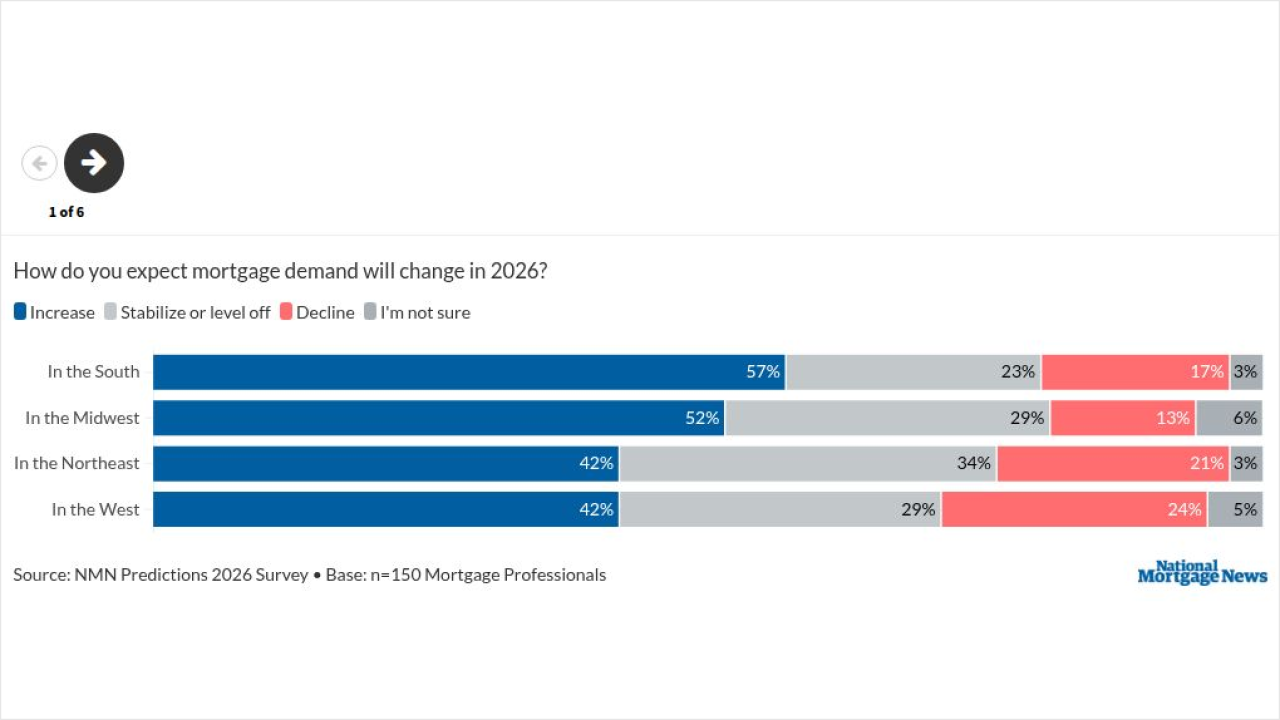Mixed economic signals left mortgage rates flat over the past seven days, with experts suggesting the end of Federal Reserve policy hikes might be coming as well.
The 30-year fixed rate mortgage averaged 6.27% for the weekly period ending April 13, down a single basis point from
The 15-year fixed mortgage average took a bigger drop, falling 10 basis points to 5.54% from 5.64% week over week. In the same survey period of 2022, the 15-year rate averaged 4.17%.
While finishing down again for the fifth straight week, the 30-year rate reflected the up-and-down movement of much of the past seven days for 10-year Treasuries, which moved sideways between 3.37% and 3.45%. The yield opened at 3.39% on Thursday morning.
Recent economic data provided few reasons for investors to make decisions that would have dramatically sent mortgage rates moving in either direction.
Rates started to increase early in the week, "as the latest jobs report pointed to a tighter than expected labor market and perhaps more resilient inflation pressures," according to Orphe Divounguy, senior macroeconomist at Zillow Home Loans, in a research statement.
However, the March Consumer Price Index released on Wednesday tempered some of that sentiment. "Incoming data suggest inflation remains well above the desired level but showing signs of deceleration," Freddie Mac Chief Economist Sam Khater said in a press release.
"Core consumer prices continue to grow much faster than the Federal Reserve's target, but we believe slower inflation is coming in the months ahead as the economy cools and finds better balance in a post-pandemic world," wrote senior economists Sarah House and Michael Pugliese in Wells Fargo's Economic Indicator.
But while still forecasting another 25 basis point hike of the rate banks use to lend to each other at the Federal Open Market Committee meeting in early May, the central bank's plans beyond look "increasingly uncertain," they said.
"We think the most likely outcome is for the FOMC to keep the federal funds rate steady for an extended period of time," the Wells Fargo economists wrote.
Should the prediction play out, the developments point to some rate stability for mortgage lenders and borrowers, removing much of the uncertainty they have faced over the past several months and holding
Slower inflation and a tight labor market is helping create "increased optimism among prospective homebuyers as the housing market hits its peak in the spring and summer," Khater said.




